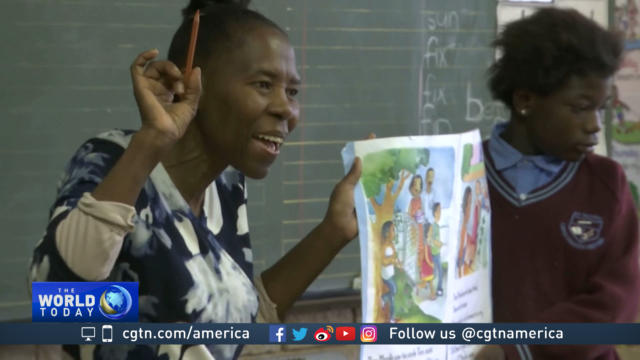The 31st African Union Summit is underway in Mauritania. Leaders are discussing gender equality and women’s empowerment. Millions face an uphill battle, with less access than men to basic services.
As CGTN’s Sumitra Nydoo reports, health-care is a prime example.
Follow Sumitra Nydoo on Twitter @sumitranydoo
Millions of women remain a marginalized group both socially and economically.
Lower education levels, gender-based violence, and the lack of financial freedom restrict them from taking care of their families and their own health needs.
“That gender disparity has all sorts of other effects,” explained Dr. Helen Rees, the director of reproductive health at Wits University’s HIV Institute. “It can stop women accessing services. It can stop women accessing, say, contraceptives because the man can say no, I don’t want you to do that. We also know that it influences women, young women in particular, in the countries where HIV is a problem.”
A staggering 200 million women globally do not have access to proper family planning. Every day, more than 800 women die from pregnancy or childbirth.
Ninety-nine percent of these preventable deaths occur in developing countries, more than half in sub-Saharan Africa. The United Nations wants to reduce the global rate to 70 per 100,000 births by 2030.
According to Natalie Africa, the U.N. Foundation’s senior global health director, “Women’s health is still a neglected element, even though women’s health should be at the center of healthcare because, after all, women are the givers of life, and they are the main caregivers as well as other people.”
“But because of gender inequality and the fact that women are not regarded as equal generally, it means that even their health needs are not considered to be a priority.”
Females make up 75 percent of the global health workforce. But men still dominate the boardrooms, putting them in charge of important health and policy decisions that affect women.
“It’s about getting more women into leadership positions,” Africa believes. “But I also think it’s about changing men and bringing them along with us. The more women occupy leadership positions, the more they will have the strength and confidence to set an agenda that is for their benefit as well as others.”
Women contribute half the world’s workforce but add just 37 percent to global GDP. If females are given equal standing it will boost their economic contribution by 26 percent.
The new National Health Insurance Bill here in South Africa has made pregnant women a priority. It’s one of four main projects that have already been budgeted for. It’s hoped other countries will do the same.
 CGTN America
CGTN America
